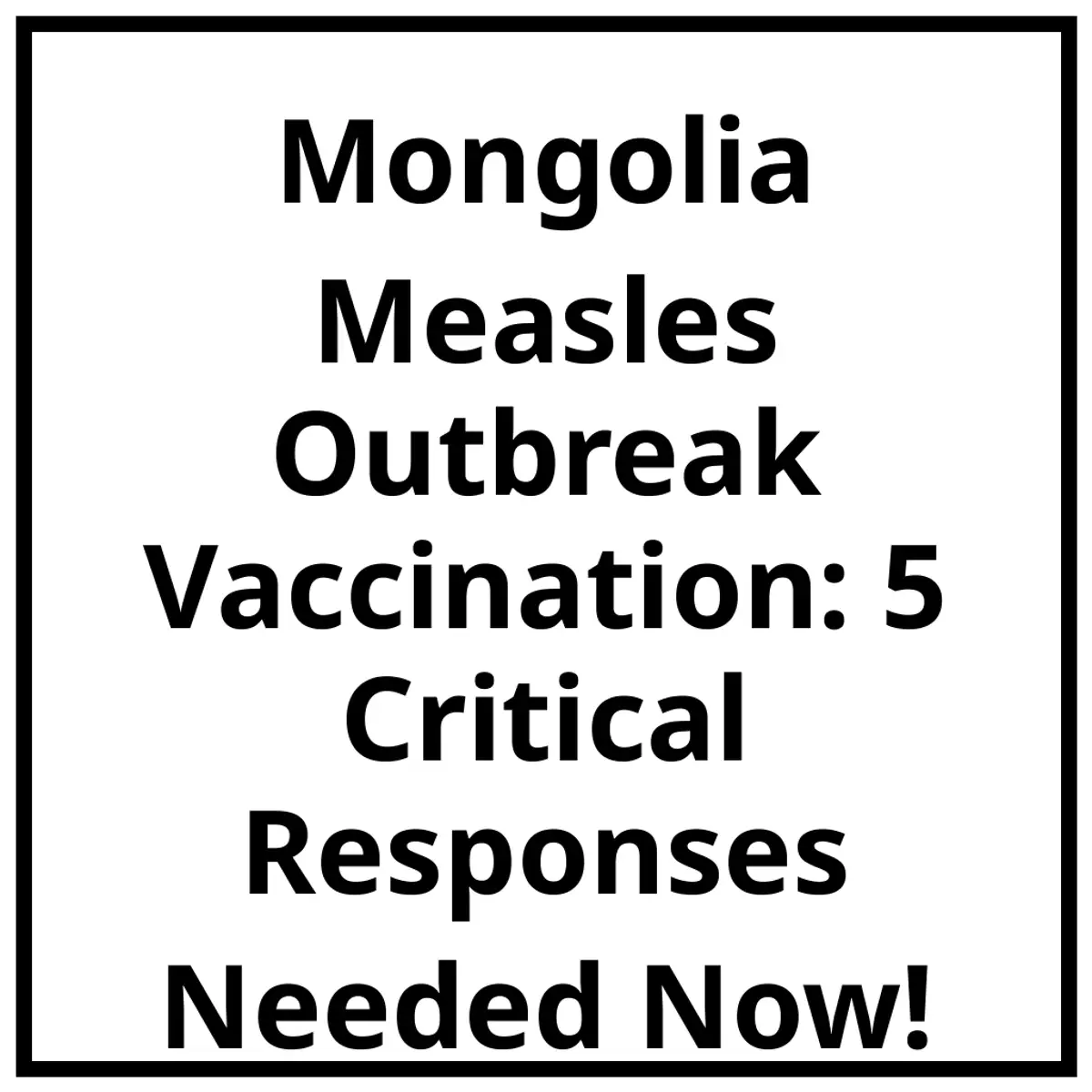Mongolia faces a serious measles outbreak with over 200 cases. Key responses are crucial to ensure vaccination coverage and public health.

Mongolia is grappling with a significant health challenge as it contends with rising measles cases—now exceeding 200 and sparking fears about vaccination coverage and public health responses. Originating from travelers returning from Vietnam, this outbreak reveals the vulnerability of populations where immunization isn’t sufficiently robust.
Read Also – 👉👉AI in Cell Research: 5 Ways the Revolutionary scNET Tool is Transforming Personalized Medicine👈👈
Background of the Outbreak
Mongolia’s Initial Successes and Subsequent Vulnerabilities
Mongolia’s history with measles is a mixed bag. In 2014, it earned the prestigious Measles Elimination Certificate from the World Health Organization (WHO), recognizing the nation’s effective vaccination campaigns. However, a devastating outbreak from March 2015 to December 2016 led to over 53,000 cases and 140 deaths, highlighting that prior success does not eliminate vulnerability to infectious diseases. Fast forward to August 2024, when a traveler brought the virus back to Mongolia, igniting fears of a new epidemic.
Current Status of Cases and Response
As of early April 2025, Mongolia has reported 220 confirmed measles cases, predominantly among school-age children who did not complete their vaccine regimens. The cities of Ulaanbaatar, Dundgovi, and Umnugovi are witnessing the brunt of this surge. The rapid increase has propelled the Ministry of Health and the National Center for Communicable Diseases (NCCD) into action, urgently reinforcing the necessity of robust vaccination to quell the potential for wider community transmission.
Key Developments in Response to the Measles Outbreak
Health Authorities’ Strategic Actions
- Emphasizing the need for two doses of the measles vaccine among children.
- Deploying incident management teams to manage the outbreak actively.
- Coordinating with WHO and other international organizations for technical support.
- Expanding vaccination outreach to ensure coverage in high-risk areas.
- Enhancing surveillance and quick response mechanisms to detect new cases.
Impact Analysis of the Measles Outbreak
Health Implications
The rise in measles cases brings severe health risks, especially for under-vaccinated children and young adults. Measles is highly contagious and can lead to dire complications, such as pneumonia, encephalitis, and death. Maintaining high vaccination rates has never been more critical for safeguarding public health.
Socioeconomic Consequences
The repercussions of a measles outbreak extend beyond immediate health threats; they disrupt education as many schools may close to mitigate the spread. This can lead to increased healthcare costs, lost productivity for families, and strain on government resources.
Future Implications and Expected Outcomes
Projected Health Strategies to Combat the Outbreak
- Continued health education focusing on the importance of vaccination compliance.
- Targeted campaigns aimed at rural and underserved populations.
- Enhanced epidemiological surveillance to spot and address new cases swiftly.
- Building public trust through community engagement on vaccination benefits.
- Fostering collaboration with international health organizations to share best practices.
Conclusion
Mongolia’s current struggle with rising measles cases serves as a poignant reflection on the ongoing battle to maintain public health achievements, even for countries that have successfully eliminated diseases in the past. The outcomes of this outbreak will test Mongolia’s healthcare system’s resilience in responding to infectious disease threats. Through sustained efforts in vaccination initiatives, enhanced surveillance, and ongoing international support, Mongolia can mitigate the outbreak’s effects and cultivate long-term public health stability.
FAQs about the Measles Outbreak in Mongolia
What is causing the rise in measles cases in Mongolia?
The current outbreak is mainly due to undervaccination among children and the introduction of the virus from travelers returning from abroad.
How can the public help mitigate the measles outbreak?
Public cooperation in ensuring children receive two doses of the measles vaccine is crucial. Awareness campaigns can also bolster vaccination compliance.
What are the symptoms of measles?
Measles symptoms typically include high fever, cough, runny nose, red eyes, and a distinctive rash.
Why is vaccination important?
Vaccination is essential as it builds immunity in individuals and communities, preventing the spread of highly contagious diseases like measles.
What measures is the government taking to address the outbreak?
The government is enhancing vaccination campaigns, collaborating with international health organizations, and improving healthcare access in high-risk areas.
Related Videos
Read Also –
This article is for informational purposes only and should not be considered medical advice. For health concerns, please consult a licensed healthcare provider.
Read Also –
Hey! I hope you enjoyed reading this! If you did, could you do me a small favor and hit the like button? It would mean a lot to me and help me reach more people. Thank you so much! Got any thoughts on this post? Drop them in the comments below!
How many stars would you give for my effort?





